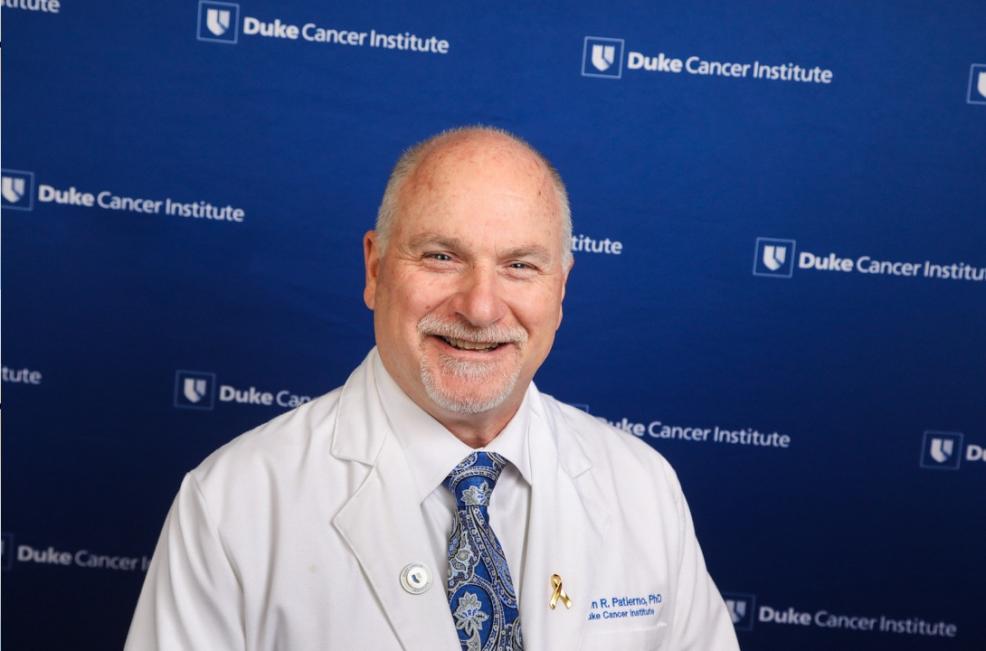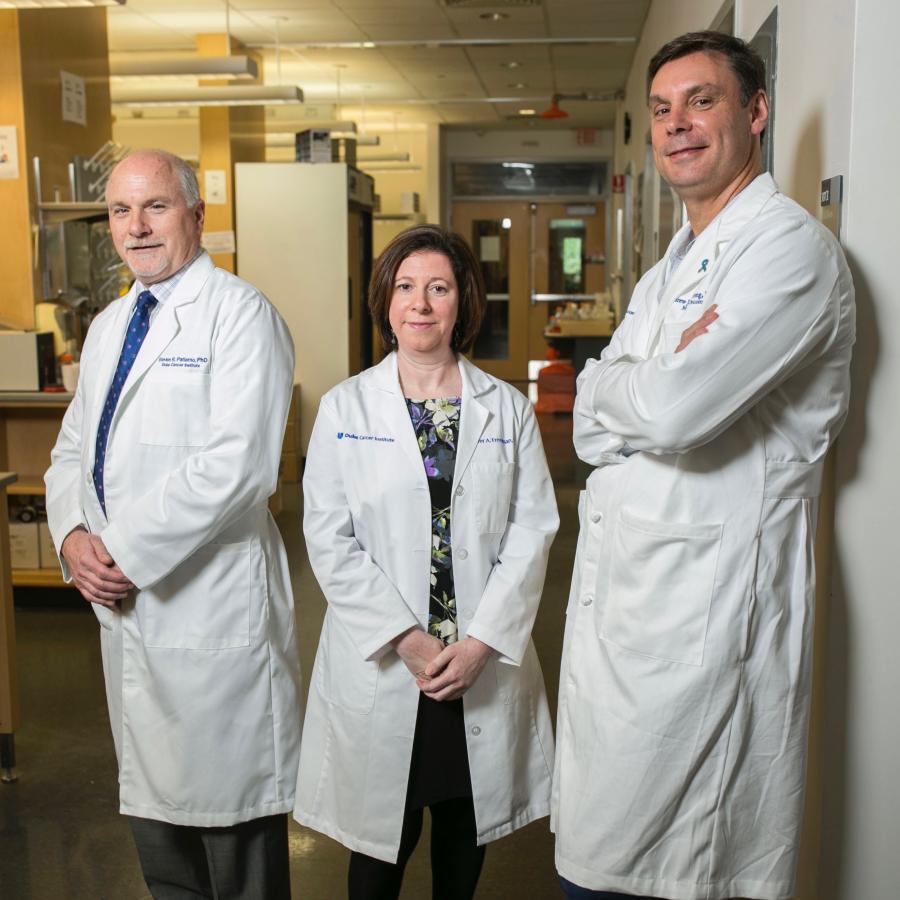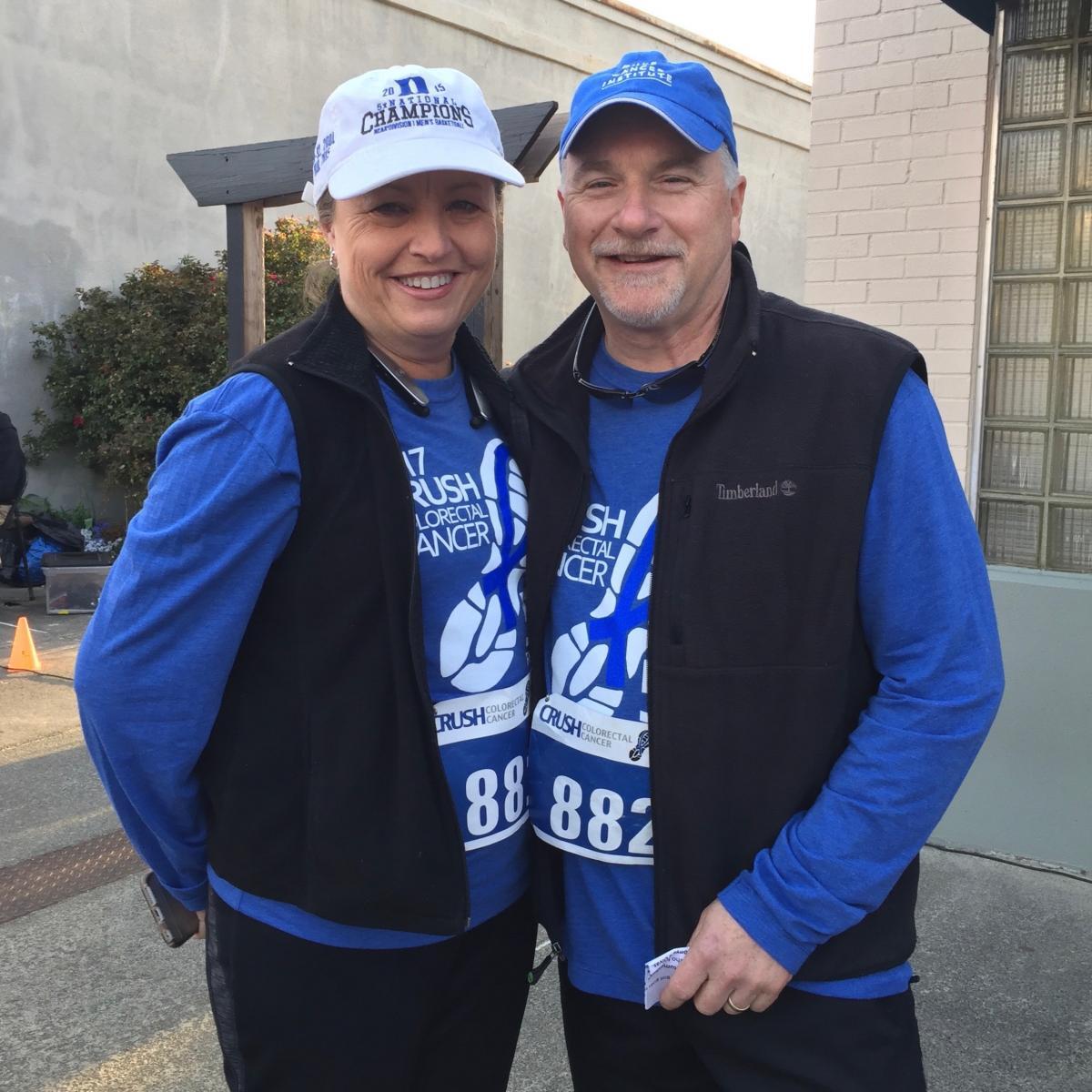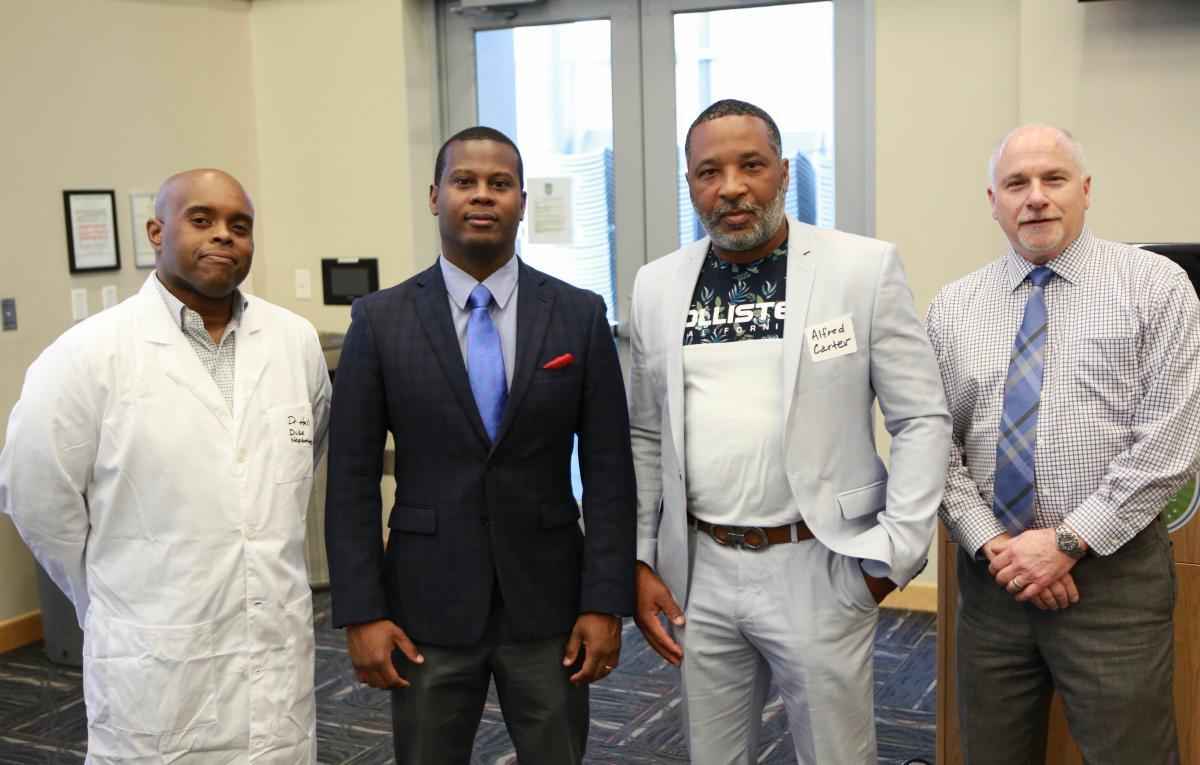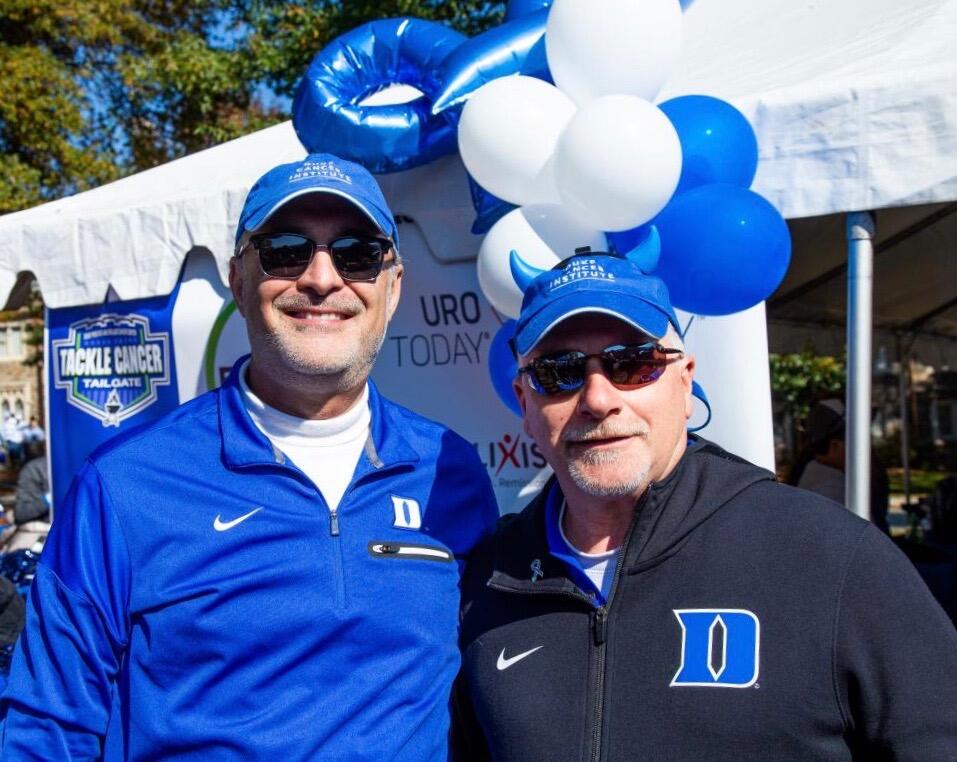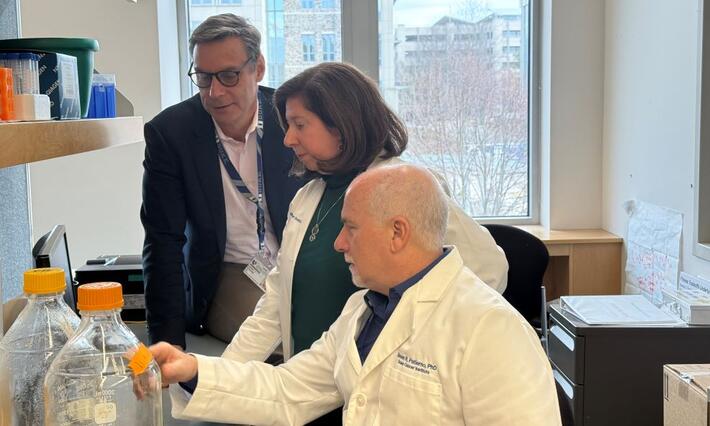
As a boy growing up in Schenectady, New York, Steven Patierno, PhD, could often be found out in the woods performing surgery on frogs, when he wasn’t playing sandlot soccer or a local, slightly more “aggressive” version of capture the flag.
“I always knew I wanted to be a scientist, even before I knew what a scientist was,” shared the deputy director of Duke Cancer Institute.
As a teen, he was into marine biology and gradually took up scuba diving — even volunteering with the Woodshole Oceanographic Institute following whales transiting Nantucket Sound.
Once he entered college in the mid 1970s, his scientific interests shifted.
“I became fascinated by how drugs worked in the brain, the science of neuropharmacology,” said Patierno, who received his Bachelor of Science degree in Pharmacy at the University of Connecticut in Storrs, Connecticut.
His first-generation Italian parents expected that after their son — the first in his family to go to college — earned his degree, he’d come home and work in a pharmacy like his clean-cut, tie-wearing classmates.
“They thought I’d be the guy in the short white coat behind the counter at CVS,” laughed Patierno. But the self-described “misfit” at pharmacy school, “a rebellious longhair with an earring” whose side hustle was playing keyboard and guitar in a band, “never had any desire to be a pharmacist.” The pharmacy-oriented faculty of the school were also “concerned” – until the Dean introduced him to the research faculty. “It opened up another world,” he shared.
Patierno felt most at home in the lab where more people looked like him and thought like him; “curious and interesting people,” he said, “who were interested in making discoveries and moving science forward, not just owning a drugstore.”
After graduation and some time off to think about what was next, he would leave the northeast for the University of Texas Health Science Center in Houston to pursue his PhD in neuro-pharmacology.

